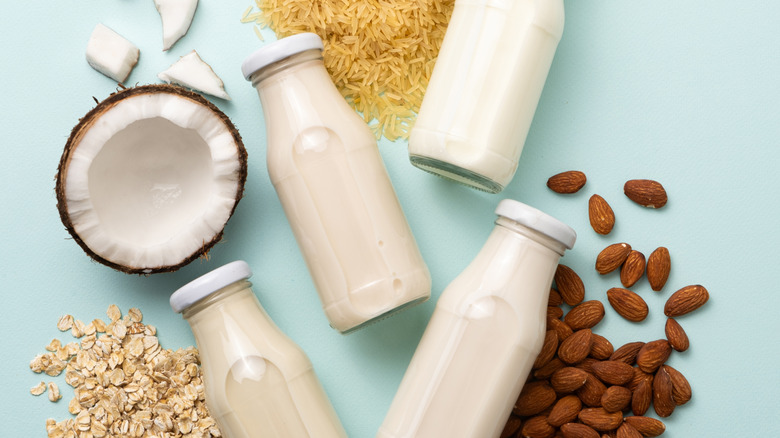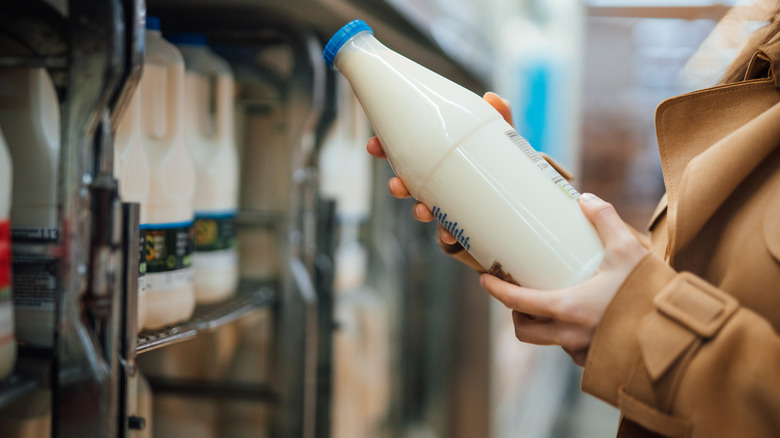Plant Milk Is More Than A Trend — We've Been Drinking It For Millennia
We've all heard it before, the complaint that young people are killing the dairy industry with their penchant for fake plant-based milks. It's true that millennials and gen z-ers are consuming less cow milk than previous generations, and that the industry is scrambling to win their hearts back. But plant milk is far from a modern trend. On the contrary, we've been enjoying alternatives to animal dairy for thousands of years.
The oldest-known plant-based milk is, unsurprisingly, coconut milk. Evidence points to humans consuming it as far back as 5,000 years ago. It's commonly found in traditional dishes in Southeast Asia, Oceania, and some of the islands in the Indian Ocean. Soy milk comes in as the second-oldest plant milk, though its origins are murky. Some sources claim that it's been used for 2,000 years, while others date it to 1365. They all agree that it originated in China, where people haven't traditionally raised cows. Soy milk reached the US in 1897, and has been popular with lactose intolerant people in the country ever since.
Almond milk is thought to have been invented between the 8th and 12th centuries in the Middle East, and was enjoyed by medieval Europeans when Christian rites forbade them from consuming animal products on specific days. Although there are some alternatives that are modern — oat milk, for instance, was invented in the 1990s — it's clear that most of these milks have been around for a long time.
What's the beef with dairy milk alternatives?
If people all over the world have been drinking plant-based milks for millennia, why are they so controversial in modern times? It turns out that the real newcomer is the dairy milk industry. People have been consuming animal milk almost since they started to domesticate mammals, but this milk was consumed fresh or in processed foods like cheeses and yogurts. It also wasn't necessarily cow milk. Animal milk is extremely perishable, so it wasn't a product fit for mass production or export. That all changed in the 19th century, when technology made it possible to transport milk in cool containers over long distances. As the industry boomed, people started drinking milk on a much more regular basis.
Plant-based alternatives became controversial after the dairy industry grew, especially as more people became curious about them in the early 21st century. Although lactose intolerance is relatively low in Europe and North America, cases have been rising in the past decades. This has led to more people looking for substitutes.
The increased interest in veganism has also affected dairy milk sales. And while most plant-based milks present environmental problems, they're still believed to be more eco-friendly than animal milks. Alternative milks aren't causing people to stop drinking cow milk, but offering a solution to those who aren't interested in (or unable to enjoy) the product, just like they have been doing for thousands of years.

